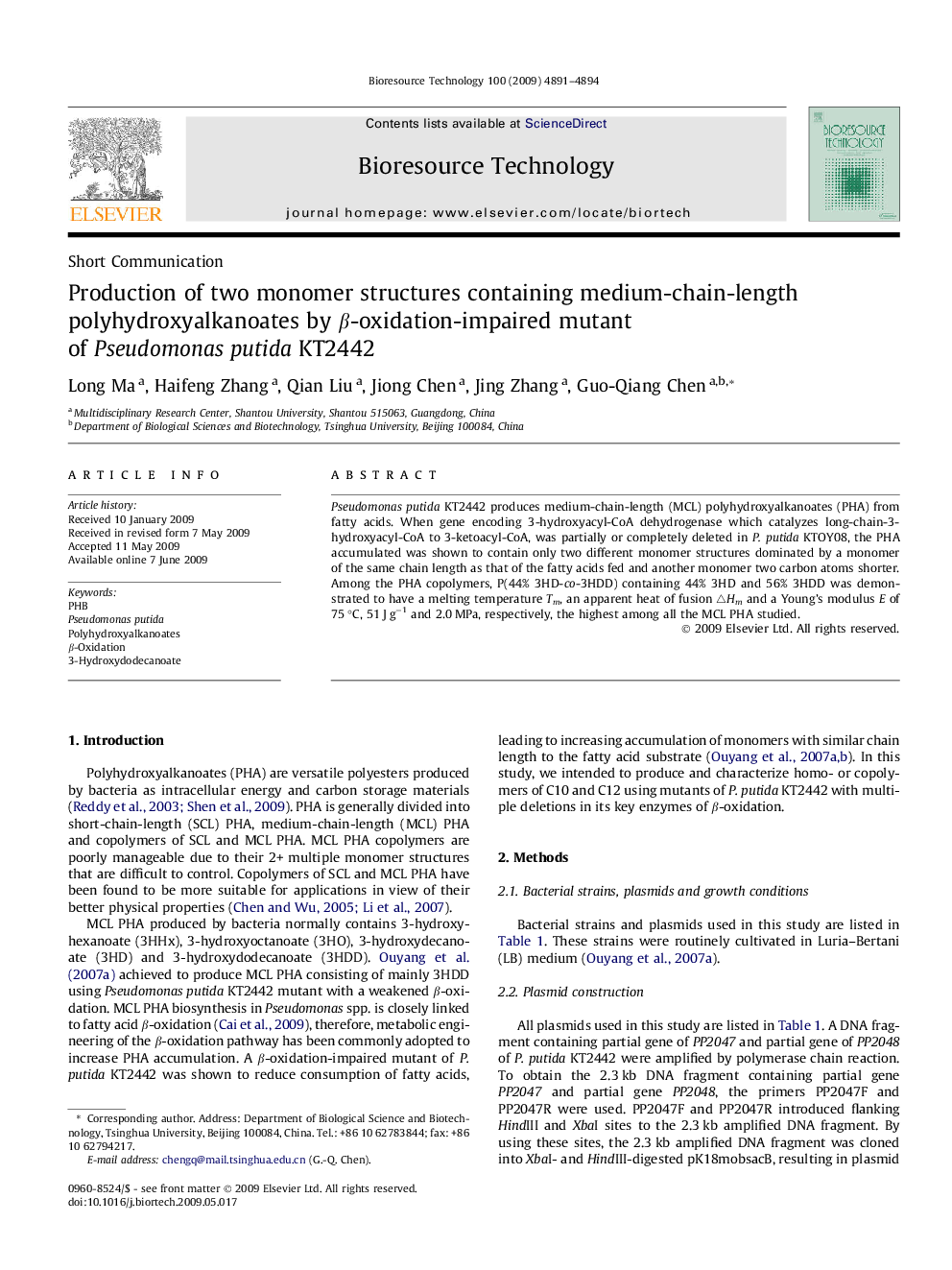| Article ID | Journal | Published Year | Pages | File Type |
|---|---|---|---|---|
| 683183 | Bioresource Technology | 2009 | 4 Pages |
Pseudomonas putida KT2442 produces medium-chain-length (MCL) polyhydroxyalkanoates (PHA) from fatty acids. When gene encoding 3-hydroxyacyl-CoA dehydrogenase which catalyzes long-chain-3-hydroxyacyl-CoA to 3-ketoacyl-CoA, was partially or completely deleted in P. putida KTOY08, the PHA accumulated was shown to contain only two different monomer structures dominated by a monomer of the same chain length as that of the fatty acids fed and another monomer two carbon atoms shorter. Among the PHA copolymers, P(44% 3HD-co-3HDD) containing 44% 3HD and 56% 3HDD was demonstrated to have a melting temperature Tm, an apparent heat of fusion △Hm and a Young’s modulus E of 75 °C, 51 J g−1 and 2.0 MPa, respectively, the highest among all the MCL PHA studied.
